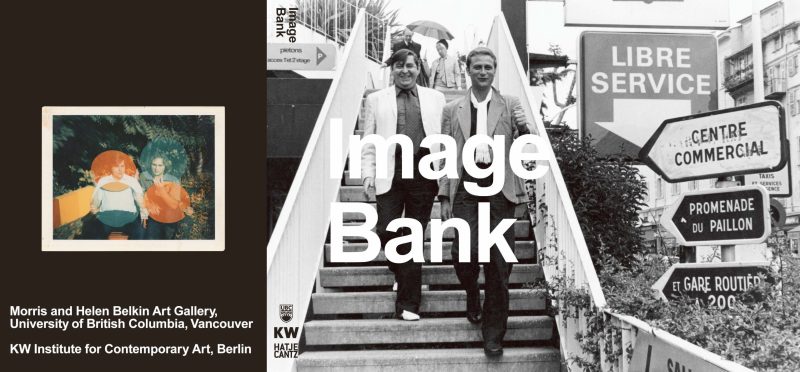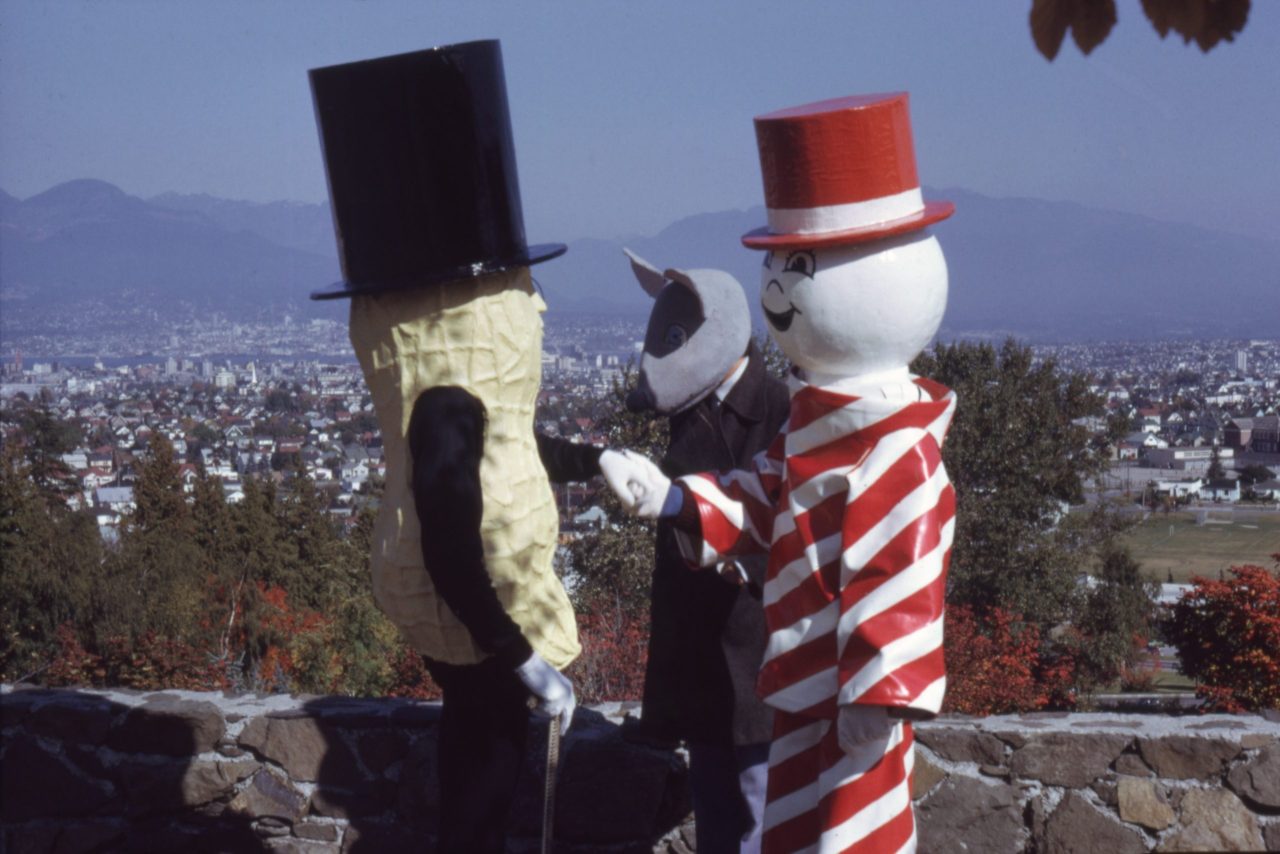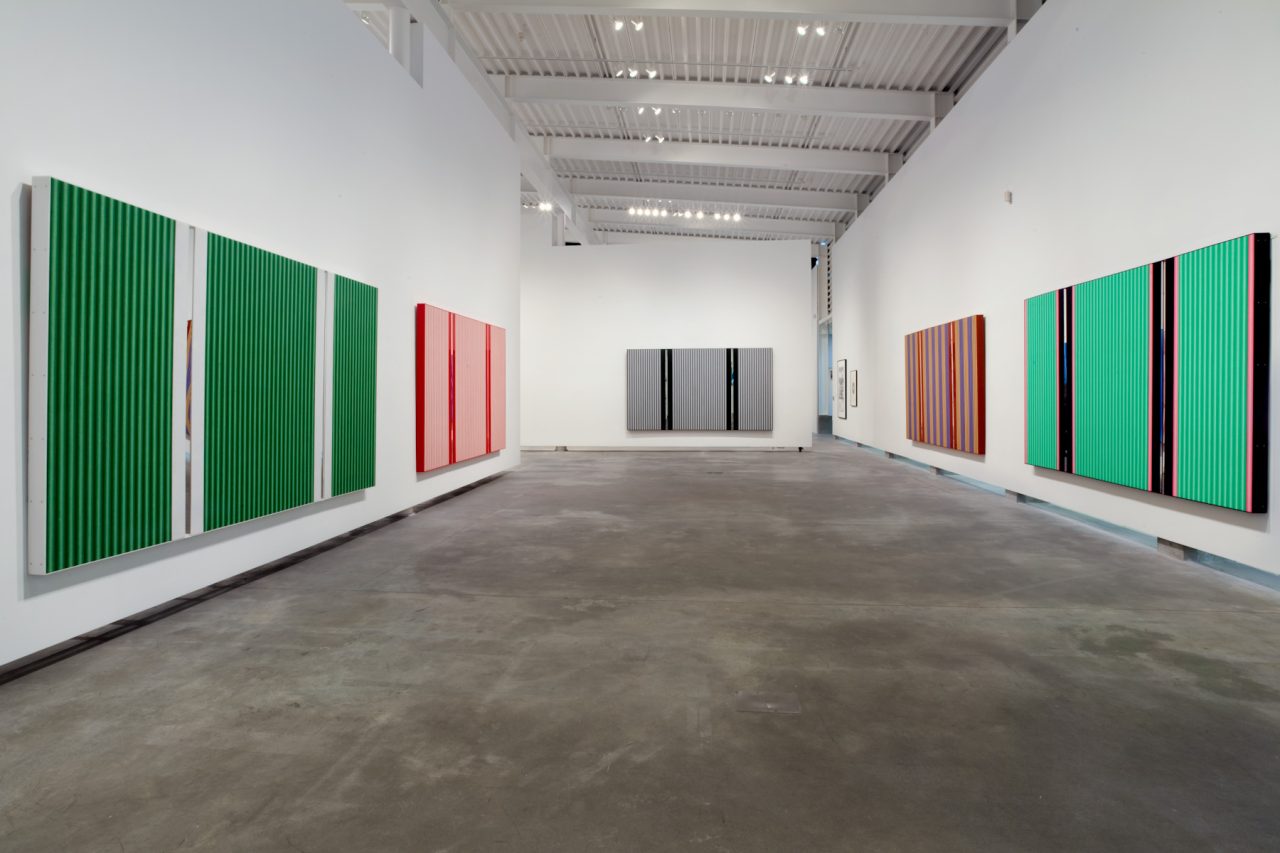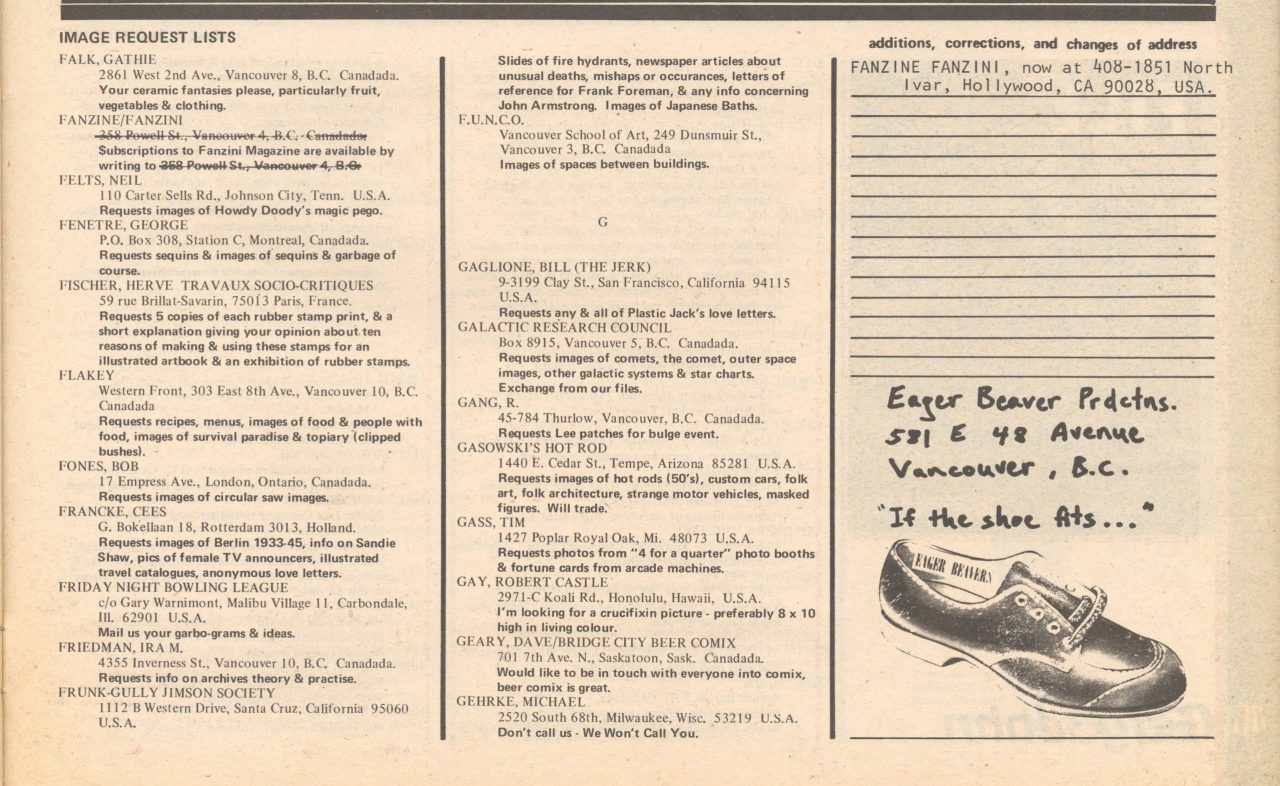
Exhibition catalogue from Image Bank at the Belkin (18 June-22 August 2021) with writing by AA Bronson, Zanna Gilbert, Krist Gruijthuijsen, Angie Keefer, Maxine Kopsa, Hadrien Laroche, Gary Lee-Nova, Michael Morris, Felicity Tayler, Vincent Trasov and Scott Watson. Image Bank explores the artistic collaboration of Michael Morris, Vincent Trasov and originally Gary Lee-Nova, including their most spectacular works – extended performances with props, such as Colour Bar Research (1970-78) and Mr. Peanut’s mayoralty campaign (1974) in which Vincent Trasov as Mr. Peanut ran for mayor of Vancouver – alongside their extensive mail-art exchanges with other networkers such as Robert Filliou, General Idea, Ant Farm and Ray Johnson’s New York Correspondence School. The catalogue is published on the occasion of the Image Bank exhibition at KW Institute for Contemporary Art, Berlin (June 22-September 1, 2019) and the Belkin (January to April 2021), curated by Krist Gruijthuijsen, Maxine Kopsa and Scott Watson. Critical essays explore the compelling history of Image Bank and the mail-art network in which they performed: Hadrien Laroche revisits Babyland, an important rural “set” for Image Bank performances; Felicity Tayler examines the artists’ directories as a new form of kinship and community; Zanna Gilbert considers Image Bank’s postcard exhibition in the context of mail-art exhibitions; AA Bronson’s important text “Pablum for the Pablum Eaters” is reprinted from General Idea’s FILE Megazine; Angie Keefer writes of how we might think about networks in general; and co-curator Scott Watson defines the beginning and end of Image Bank and its legacy both locally and internationally. Interviews with the artists Michael Morris, Vincent Trasov and Gary Lee-Nova provide insight into the personalities of Image Bank. Through words and images, Image Bank reflects on a period of optimism where artists envisioned a non-hierarchical alternative to the world of art galleries and museums, where images and ideas could be freely exchanged through the international postal system thereby creating an open-ended and decentralized method of networking that presages social media.



